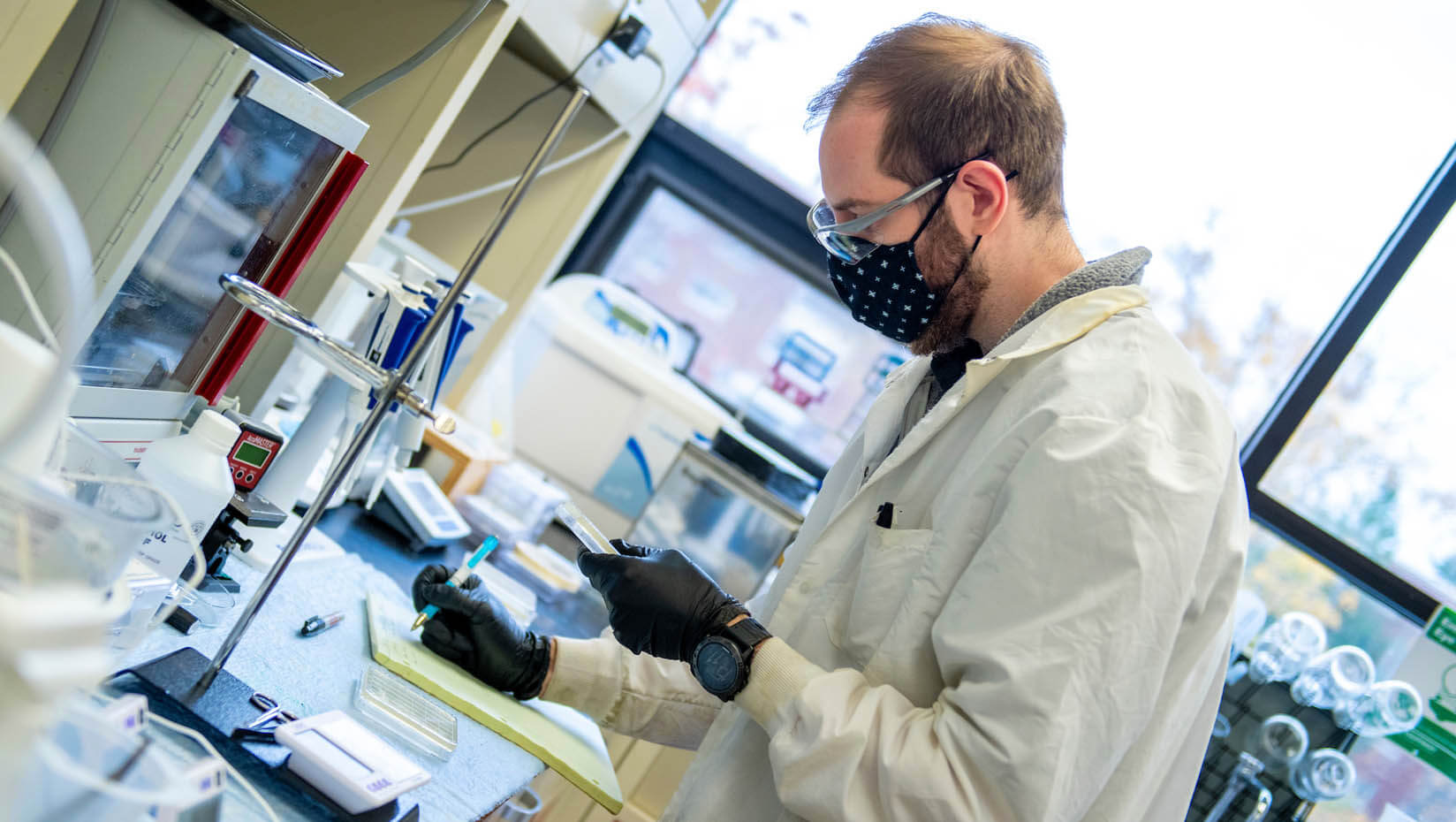
Daniel Regan: Innovation earns the Dr. Susan J. Hunter Presidential Research Impact Award
Daniel Regan, a Ph.D. candidate in the Graduate School of Biomedical Science and Engineering (GSBSE), is conducting research focused on the development of platforms for the detection and deterrence of biological threats.
A year into his work in assistant professor Caitlin Howell’s Biointerface and Biomimetics Lab, Regan had an idea for a new type of catch-and-release filter for use in medevacs. The original concept combined his passion for military biodefense and biomedical engineering. His goal was to monitor biological threats while improving patient care and overall cleanliness. Little did he know that his project would be highly applicable to a rapidly emerging COVID-19 pandemic.
“Bio threats are only going to become more problematic as time goes on, but it doesn’t stop at manmade threats. For decades, scientists have been suggesting that a major pandemic may be imminent,” Regan says. With COVID-19, those hypotheses were proven correct. It quickly became clear that the catch-and-release filter originally planned for military use could be useful in other environments, such as nursing homes, emergency rooms, schools and more.
Everyone is pretty familiar with HEPA filters, which catch allergens, Regan says. They were designed to keep airborne particulates trapped for an extended period and then disposed, presenting challenges to monitoring the status of biological threats.
“We engineered a filter that addressed the need for easily transferring the trapped pathogens while maintaining viability.” The result is a liquid-infused membrane filter. “The pathogens get caught in the liquid, which makes it easier to manipulate and take samples for further analysis.”
According to Regan, this will help scientists to rapidly identify potential exposure to infectious diseases, progressing toward early-warning systems. Regan has been working to get this design patented, while testing the efficacy of the filter. The idea of not only being able to block dangerous pathogens, but also utilize them to create assays and better understand what is present in the environment is a potential game changer.
This potential was recognized during the 2020 UMaine Student Symposium, which was held virtually Oct. 2. Regan received the Dr. Susan J. Hunter Presidential Research Impact Award for the top Graduate Presentation and was selected as the top graduate presenter in the category of Engineering and Information Sciences for his presentation titled “Optimizing Liquid-Gated Membranes for Bioaerosol Capture and Release.”
“Maine has some really great researchers and I was fortunate enough to have them pick me for this award,” Regan says. “When you’re working on a Ph.D., you don’t necessarily get that recognition until the work is done, so it’s exciting to be recognized for the impact my research has made and will make.”
Contact: Marcella Silver, marcella.silver@maine.edu
